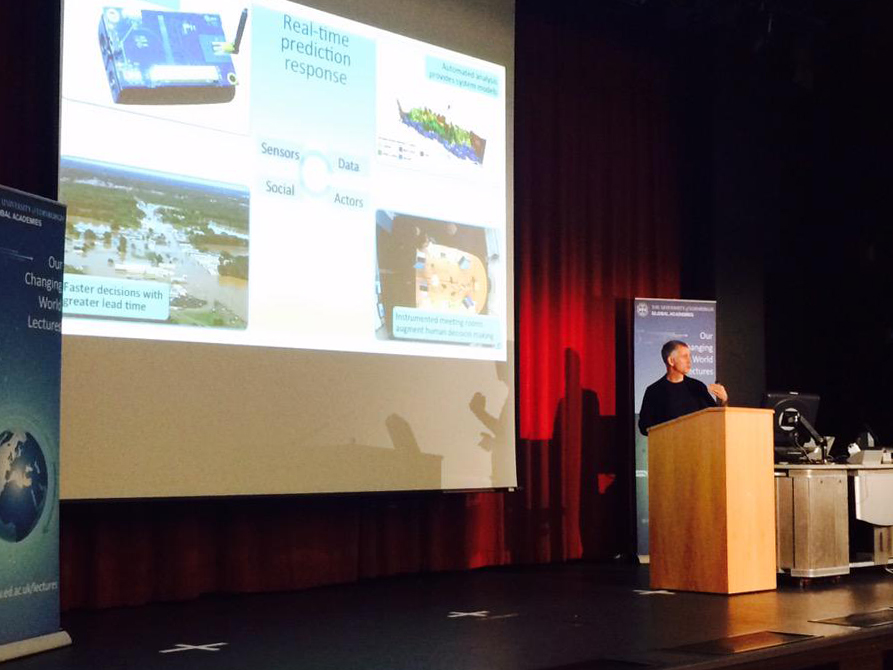Our Changing World: The data revolution in global healthcare

A summary by Marlena Segar, 1st year student in Social and Economic History with Environmental Studies
Dave Robertson’s focus during this second lecture in the ‘Our Changing World’ series was on the importance and necessity of a huge advancement in healthcare data collection and analysis.
The health crisis caused by our growing and ageing population coupled with a huge gap in NHS funding is what Robertson termed ‘double jeopardy.’ Robertson’s ‘solution’ for this would be a complete transfer of our personal health records onto a virtual data system that would allow for greater and more extensive research and therefore a dramatic advancement in treatment.
Robertson explained that this would be precipitated through a cycle of sensors, available data, actor numbers and social embedding. Sensors would be used to access and collect the relevant information needed, this available data would then be analysed and inferred correctly. The results of which would then be acted upon to achieve a treatment or drug which would then be targeted at affected members of the population to ensure a healthy society. The benefits of such a system can already be seen through Scotland’s digital radiology database that has resulted in a 100% reduction in film and chemical costs as well as a 10% reduction in re-examinations, highlighting how such technology will save on time and resources.
Of course, such largescale research would require data sharing and the question of security was the dominant feature of the audiences’ questions. Robertson emphasised that the priority surrounding our personal medical records in the NHS was actually safe-guarding it rather than using it for research and advancement. He conceded that there was an appropriate level of cautious ‘paranoia’ to be had but that we should all ‘go with the technology wave’, as it is the only way to deal with the demographic surge and the medical problems that arise as a result.





Recent comments